
Decode Politics: Why NC can’t rid itself of 1987 J-K ‘rigged’ polls shadow
As Sajad Lone says biggest outreach towards Kashmiris would be to try Farooq Abdullah, Congress leaders, officials for their role in 1987 Assembly polls, BJP backs the allegations, NC hits back.
Last week, Peoples Conference chairman Sajad Lone said that the biggest confidence building measure towards Kashmiris would be to register an FIR against National Conference chief Farooq Abdullah, Congress leaders and the bureaucrats for their role in the alleged rigging of the 1987 Assembly polls.
That year’s elections are widely considered as a watershed moment in Kashmir’s political history, and the immediate trigger for the breakout of militancy. For decades, the fate of those polls has remained the mainstay of Kashmir’s political and electoral discourse.
What was the unrest in the lead-up to the 1987 elections?
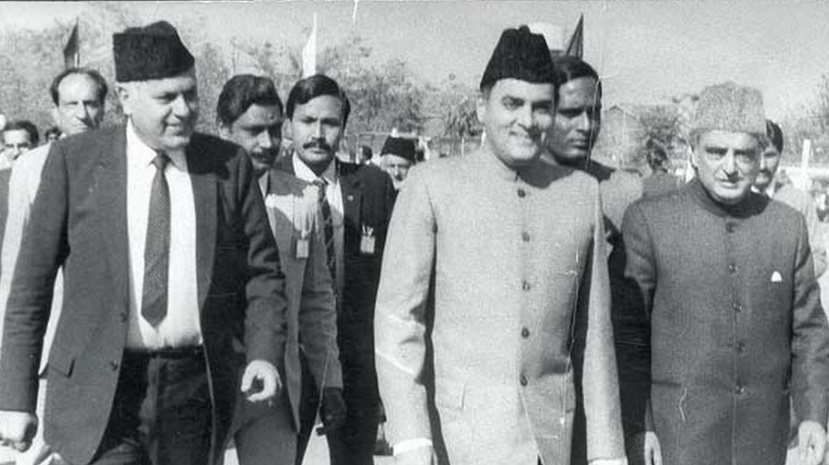
In 1986, then J&K Governor Jagmohan, an unpopular figure in Kashmir, dismissed the Ghulam Mohammad Shah-led Awami National Conference (ANC) government and imposed Governor’s rule in the erstwhile state. Shah himself was seen as an usurper to the post, with the then Congress government at the Centre led by Rajiv Gandhi accused of instigating a rebellion against Farooq Abdullah and appointing Shah, his brother-in-law, as CM.
With Jagmohan overseeing Governor’s rule, several ordinances and laws were passed that were perceived in Kashmir as driven by a “communal agenda” and “undermining the Muslim-majority character of the state” – including a ban on the sale and consumption of meat on Hindu festivals such as Janmashtami.
Several social and political organisations sprung up in Kashmir in opposition to these “changes”, including one by government employees called the ‘Muslim Employees Federation’. The Governor’s action against nine employees over this, as well as arrests of several youth activists, political and religious leaders, added to the discontent.
In September 1986, several groups, many of them religious organisations, announced the formation of a joint Muslim United Front (MUF). The biggest of its constituents was the Jamaat-e-Islami (JeI), the only one among the groups with an organisational structure and framework, allowing it to emerge as the MUF’s mainstay.
What happened in the 1987 elections?
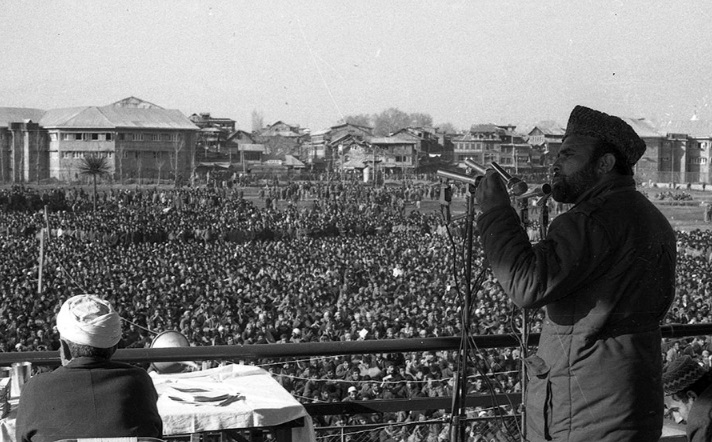
Unnerved by the growing popularity of the MUF, the Rajiv Gandhi government decided to mend fences with Farooq Abdullah, with their personal friendship helping. Under this “Rajiv-Farooq Accord”, Abdullah formed the government in J&K in November 1986 with Congress support.
The Valley saw this as another outrage, besides being too little and too late. The MUF, which had quickly organised itself into a political party apart from a religious force, tapped into these sentiments.
As elections were announced, the MUF decided to join the poll fray, though some voices within were opposed to it. Its election symbol was ‘pen and inkpot’ (later adopted by the Peoples Democratic Party), and its manifesto included the resolution of the Kashmir dispute according to the Simla agreement.
One of the MUF’s candidates was Mohammad Yousuf Shah, a religious preacher who delivered Friday sermons and led prayers in a mosque outside Srinagar’s Civil Secretariat. His election manager was Mohammad Yasin Malik and his polling agents were Ajaz Ahmad Dar, Ishfaq Majeed and others.
On March 23, 1987, the polls were finally held, and in a sign of what was coming, people turned out in large numbers to vote. In a first, Kashmir saw a turnout touching an astonishing 80%.
Why did the elections come to be seen as rigged?
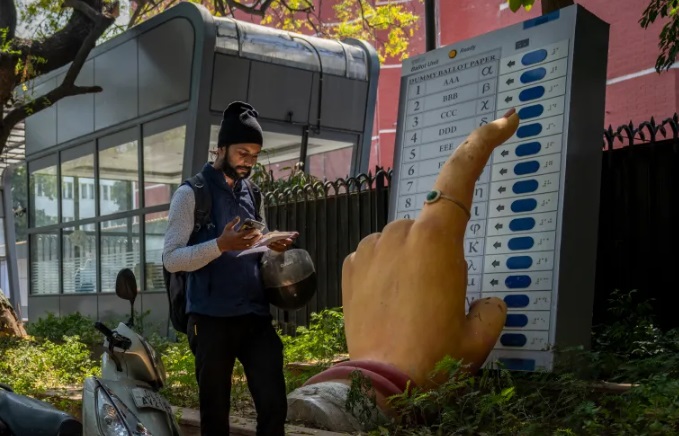
The high voter turnout and the perceptible wave of sympathy towards MUF candidates seemingly unnerved the Congress government in Delhi and its partner NC in Srinagar.
The results were delayed for many days, and when they were finally announced, only four MUF candidates were shown to have won – Syed Ali Shah Geelani, Saeed Ahmad Shah (brother of separatist leader Shabir Shah), Abdul Razaq and Ghilam Nabi Sumji – out of the 44 fielded by the front.
The widespread belief was that the governments in both Delhi and Srinagar had conspired to rig the results, to ensure that the NC-Congress remained in power.
No inquiry was ever held into the allegations of rigging.
What happened after the results were declared?
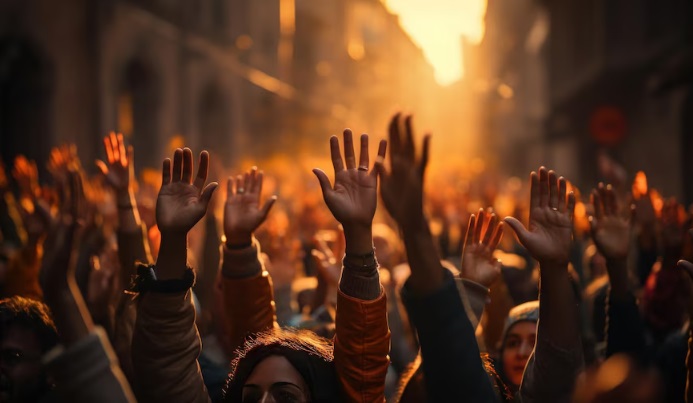
Soon as the NC-Congress came to power, it started to jail rival candidates as well as their supporters. Mohammad Yousuf Shah, his associates like Yasin Malik and Ajaz Dar and other candidates were jailed and allegedly tortured. There were reports that Mohammad Yousuf Shah’s rival Ghulam Mohidin Shah of the NC personally beat him up inside jail.
Soon after he was released, Malik crossed over to Pakistan and later emerged as the chief of the militant outfit Jammu and Kashmir Liberation Front (JKLF). Ajaz Dar took on arms and targeted then DIG Ali Mohammad Watali at his residence and was killed. Mohammad Yousuf Shah himself moved to Pakistan and took on the name ‘Syed Salahudin’, becoming the supremo of the Hizbul Mujahideen and an internationally designated terrorist.
Malik has been in jail since 2019 in an alleged terror funding case. He is currently facing trial in the kidnapping of Rubaiya Sayeed, daughter of then Home Minister (and PDP founder) Mufti Mohammad Sayeed, and the killing of four Air Force personnel, and has been convicted in a case related to alleged terror and secessionist activities case after he refused to challenge the charges against him.
How 1987 remains relevant today?
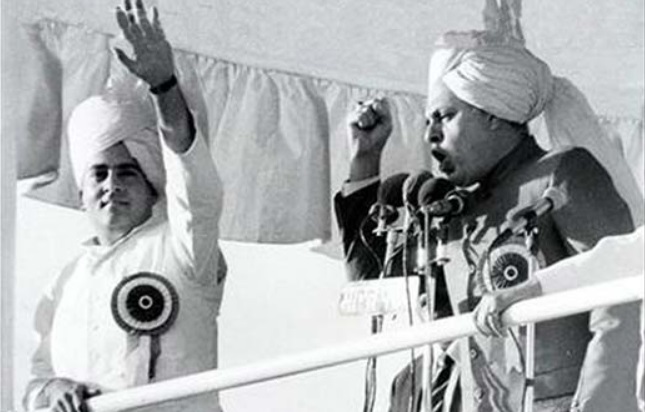
The spectre of 1987 continues to haunt the NC as its opponents – from the PDP to Peoples Conference and BJP – rake it up time and again to blame the party and its leadership for what happened, and the militancy that resulted.
Soon after Lone’s remarks demanding an FIR against him, Congress leaders and officials over the 1987 elections, Farooq Abdullah said “he (Lone) should do whatever he feels”.
The NC has maintained that the allegations of rigging regarding the 1987 polls are fake. “I don’t know why it is relevant today but obviously it is a fake narrative peddled by our opponents from the BJP to Peoples Conference and others,” NC spokesperson Imran Nabi told The Indian Express.
Nabi added that the BJP raising it time and again meant it was “toeing the separatist line”. “There was no rigging. If there had been rigging, there would have been cases in courts.”
He also said that the claims that the alleged poll rigging gave birth to militancy were also wrong. “The (militant) rebellion had started much earlier. The seeds were sown before 1987,” he said. “It (bringing talk of the 1987 polls back) is a design. That is why we say that all these parties raising it are proxies of the BJP.”
However, as per former minister and senior PDP leader Naeem Akhtar, the subject is as relevant as ever, as the coming Lok Sabha elections in J&K are already under the shadow of “pre-poll rigging”.
“The first fair elections in J&K happened in 1977, followed by 1983, in which the people were pitted against seemingly an alliance at the national level. Kashmir responded with one voice and gave a thumping victory to Sheikh Mohammad Abdullah,” Akhtar said.
“But when Farooq Abdullah came to power, he couldn’t carry himself the way his father did. He succumbed to New Delhi. There were two democratic forces (opposed to the NC) in J&K at that time. One were the pro-Pakistan elements, represented by Maulvi Mohammad Farooq (the then Mirwaiz), and the other was the Congress. Farooq’s accords with Maulvi Farooq and the Congress ended that. Then they resorted to rigging, which changed the history of J&K.”
Drawing a parallel with the present, Akhtar said: “We have already seen pre-poll rigging through the unilateral delimitation. The BJP has resorted to pre-poll engineering. Otherwise, how could Poonch or Rajouri (in Jammu) become a part of Anantnag (in Kashmir) when they have no road connectivity. They have to pass through another constituency.”
What is the BJP’s stand?

The BJP argues that it is important to educate people about what happened in the past. “The regional parties say militancy continues in the Valley even after the abrogation (of Article 370), that there is still violence. But the point is who forced the people of Kashnir to take up the gun? Who forced Mohammad Yousuf to become Salahuddin? It were the NC and Congress,” said BJP spokesman Sajid Yousuf Shah.
About the PDP’s allegations regarding delimitation, Shah said this was a wrong notion. “The delimitation has only linked or delinked areas, but the voters are the same… So the allegations regarding EVMs, delimitation etc are irrelevant.”

